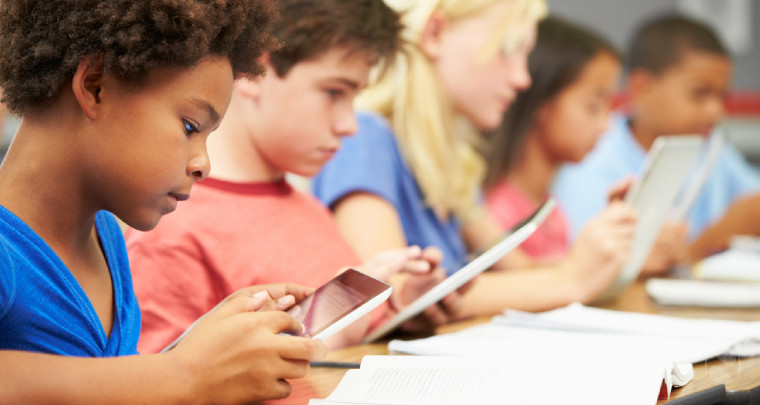The education sector is particularly important for manufacturers keen to target new users from a young age, and to sell their devices in large numbers, with huge sales potential in markets around the world. National and local authorities often buy hundreds, or even thousands, of devices at a time, and with services attached to those devices, companies stand to gain plenty by chasing these deals.
In the UK, the number of tablets in schools is predicted to more than double within the next two years – from 430,000 today, to around 900,000 in 2016. But the rate of tablet adoption in the UK’s youth education sector has already been significant.

As BBC News reports, a study – commissioned by Tablets for Schools, a charity that focuses on technology in education – has found that almost 70% of UK primary and secondary schools now use tablet computers as part of their academic activities.
The research looked at a representative sample of 671 schools from across the UK, including both state-run and independent/private schools, and found that 68% of primary and 69% of secondary schools used tablets to some extent in their teaching. In almost a tenth of all schools, every student has their own dedicated tablet.
The study also found that tablet usage was greatest at academy schools – self-governing schools funded directly by central government, rather than via local authorities.
But the same research also concluded that, despite the rapid growth in tablet usage in schools, there is still no clear or decisive evidence showing that the majority of students are actually benefiting academically from having all of this technology at their fingertips in the classroom.
Anecdotally, many teachers and head teachers speak positively about the impact of tablets in education, particularly when it comes to helping less motivated and less able students to learn. According to a separate study jointly published by the National Literacy Trust and media group Pearson, such students are much more likely to want to learn to read on devices with touchscreens than by reading printed books.
Source: BBC News | Pupils in class using tablets image via Shutterstock

















12 Comments - Add comment